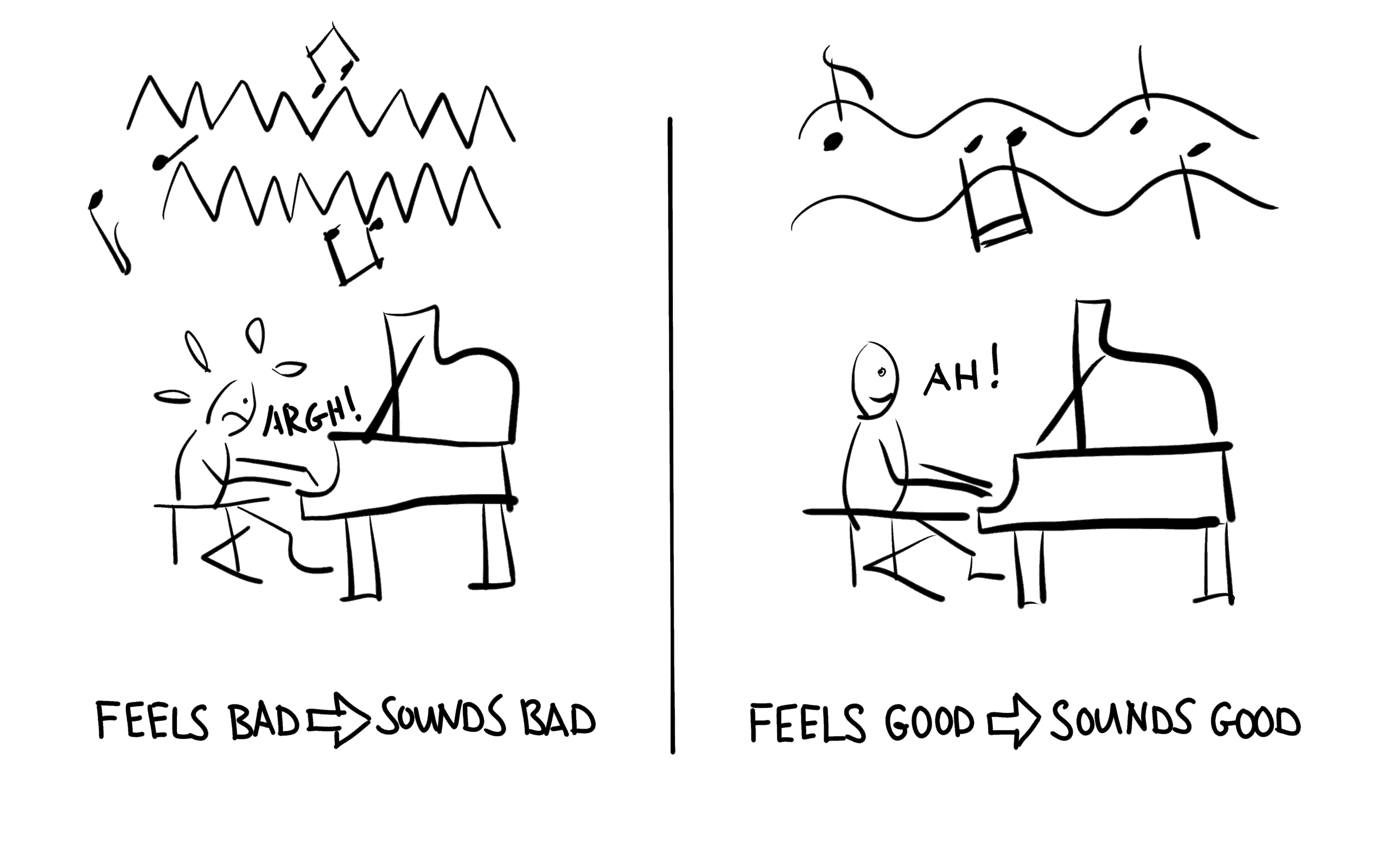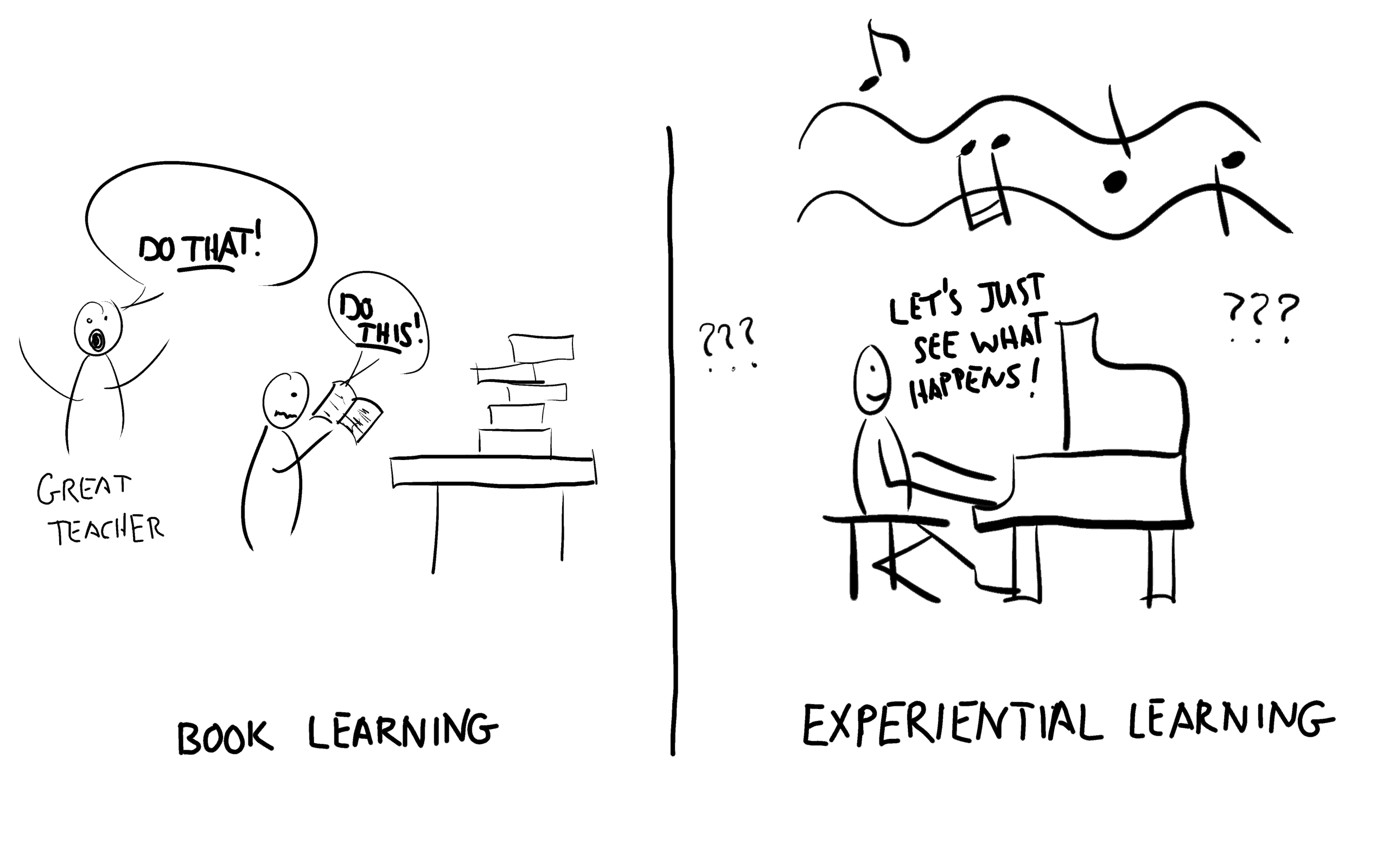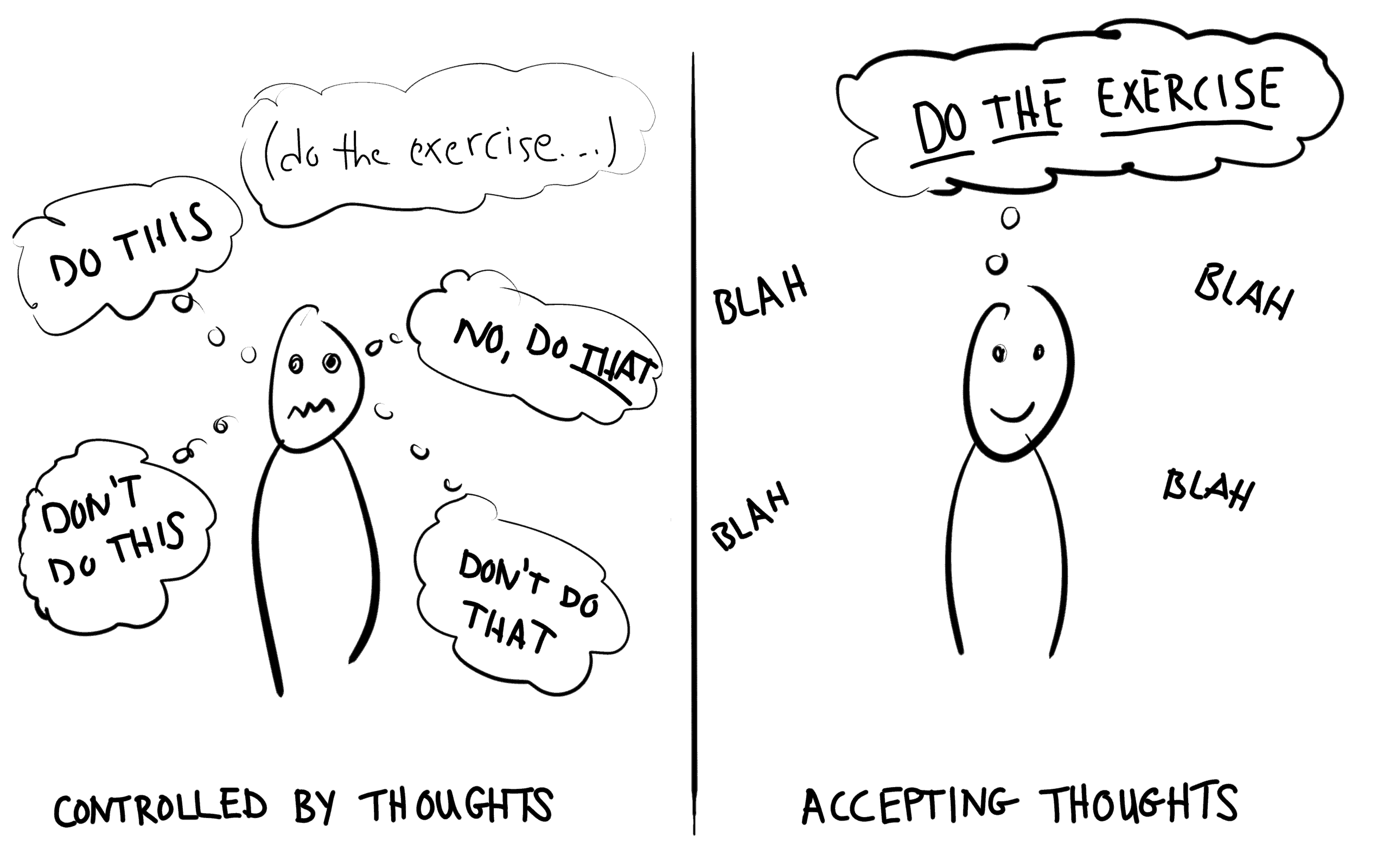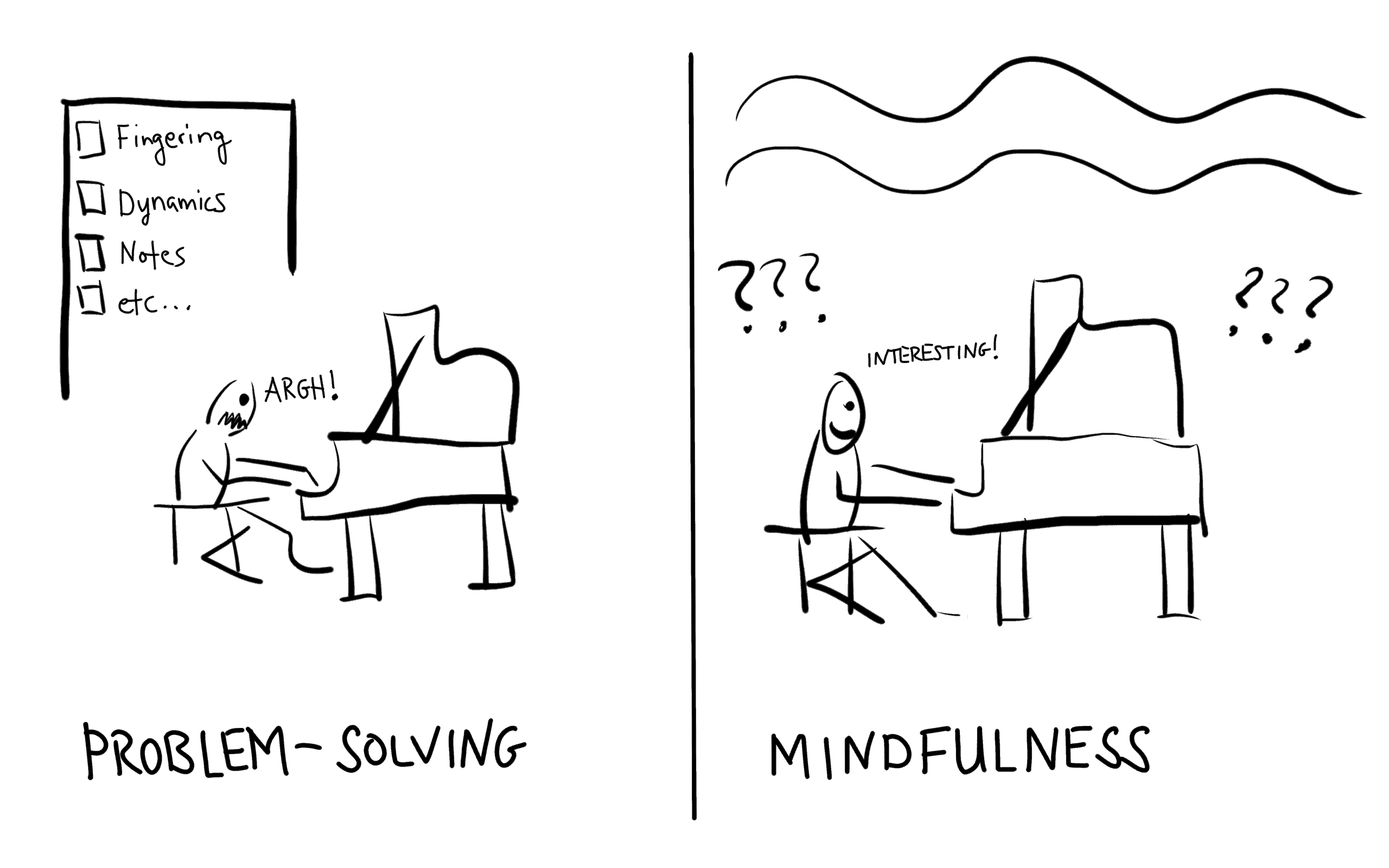At the end of the day, the music you are playing either sounds good, or doesn’t sound good.
Music sounds good because you are in the zone when you play. Your technique works naturally, and there is a flow to the whole thing.

If none of that is present, the music will not sound good. It doesn’t matter how “correctly” you are playing.
Throughout my life, I’ve learned so many things from books. When I saw that people wrote books about piano technique, I thought this was the solution to all my problems.
I figured all I needed to do was read those books, practice what they described, and then I’d be all set.
It didn’t quite work out that way.
I soon realized that “knowing” a lot about piano technique was only a tiny piece of the picture. If this knowledge isn’t integrated, it is next to useless.
And here’s the thing: Book learning cannot help you integrate your piano technique. You need experiential learning.

For example, suppose you’re practicing a technical exercise. You can’t always be reevaluating whether it’s the right exercise, or if you’re doing it right. You have to just do it, and experience what that feels like.
This was a huge problem for me. I knew that I spent so much of my time overthinking and overanalyzing. At least, that’s what I was told. By many, many people…
And yet, I couldn’t stop. My mind just did what it wanted to do, no matter how hard I tried to keep it in line.
I wanted music to be easy. But, it wasn’t.

What I didn’t realize at the time was that I was making my life difficult. Rather than beating myself up about overthinking, it’s possible to accept that thinking. Once that’s done, I can just get on with life.
This requires a radical shift in how you approach music, though. Instead of trying to solve problems, you need to care about whatever is happening in the moment.
This is called mindfulness.
